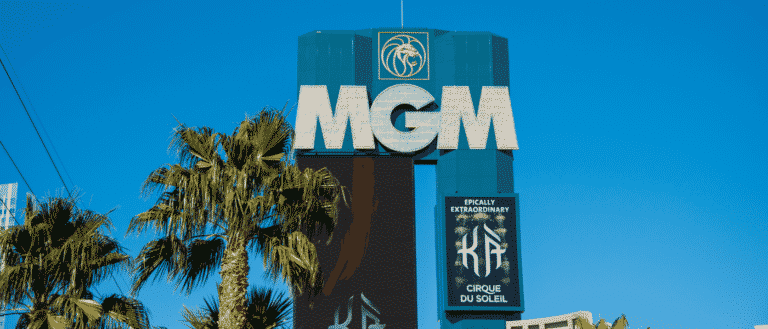Is The Horse Racing Industry Wrestling With Existential Questions?

In the shiny new world of regulated sports betting, horse racing betting can sometimes be seen as an anachronism, a hangover from a long-distant past when a bettor’s only options were to bet on track or at off-track wagering facilities.
It is a situation that horseracing itself appears to be struggling to come to grips with. As a recent feature in the New Yorker put it, mired in doping scandals – the recent Kentucky Derby scandal with the Bob Baffert-trained winner Medina Spirit failing a drugs test – the question is being asked ’
Well, many clearly think so. Indeed, there has been something of a slew of news for a dying sector, which suggests there is life in the old dog yet. For instance, in late May, the General Assembly voted unanimously to allow fixed odds horse racing wagering and is now awaiting approval by Governor Phil Murphy.
Meanwhile, in the corporate realm, we have recently seen the acquisition of UK-listed Sportech’s racing and tote betting concern to acquisitive and ambitious betting technology outfit Betmakers.
The Australian firm has also recently signed a deal with Monmouth Park to distribute fixed-odds horseracing data and content in New Jersey and beyond.
A younger crowd
Of course, all this is potentially relatively minor compared to the most significant challenge presumed to be facing the horseracing industry and its potential as a betting medium. That is the generational issue.
To put it plainly, horseracing as a sport globally has what is presumed to be an aging audience.
Yet, a recent analysis from Macquarie looking into the prospects for Churchill Downs painted a much rosier picture for the future for the company’s aforementioned Kentucky Derby.
Data from the company shows that bettors at the track during the company’s calendar highlight have been skewing younger over the past 13 years. In fact, from an average age of 47 in 2008, the betting crowd at the racetrack fell to 41 in 2019 and as low as 40 three years previously.
As the Macquarie team points out, the Kentucky Derby itself may be perhaps the most storied horse race in the US. Still, that history doesn’t weigh heavily on revenues from Derby week, which had risen to $188m in 2019 (the last ‘clean’ year before the pandemic struck) from $122m in 2011.
“The Derby brings together athletes, celebrities, and everyday people for a one-of-a-kind experience that is near impossible to replicate, in our view,” the team wrote. “The track itself has been growing revenue at a 6% CAGR from 2015-2019, with wagering growing in line with revenue over the same period (handle). Impressively, we estimate the track has been growing EBITDA 15%-plus over the last decade.”
It’s Twins
The Macquarie team then adds that it hopes to leverage its experience and profile as a leading pari-mutuel horseracing betting provider with its newly rebranded TwinSpires sports-betting operation.
The TwinSpires brand operates horseracing wagering in 39 states and generated over $2bn in handle in 2020 on horse racing alone.
“This business also offers customers streaming video of live horse races, as well as replays, and an assortment of racing and handicapping information,” says Macquarie.
“We estimate with a database of 5m members, Churchill Downs can leverage its horse racing products in its new sports betting/iGaming states.”
Still, that brand advantage is limited, with Macquarie suggesting Churchill Downs is only targeting around 5% market share in any state that TwinSpires enters.
“The TwinSpires business has been one of the most profitable horseracing platforms in the US, and the company will look to limit losses incurred from the online business,” they suggest. “As a result, management commentary points us to believe that grabbing market share isn’t a priority right now and there will be minimal cash outflow in this business.”
A dying light
Partly, this is down to understandable caution – the sports-betting and online gaming opportunity is an expensive game to play. But the other factor for those looking at leveraging horseracing is that though the audience metrics at the Derby itself are falling, the average age remains above 40.
As a recent analysis from gambling consultancy, Regulus Partners pointed out, the problem for horseracing remains that many of its advantages are slowly eroding due to increased competition, a lack of investment in the underlying race-going and betting consumer, and the increasing significance of equine welfare.
The New Yorker article painted a picture of a sport “struggling to justify itself” as accusations of mistreatment and doping issues dog the sport at the highest levels. But, as the Regulus Partners team say, the sport has to worry that the to-date “relative and glacial” decline doesn’t become precipitate. Otherwise, the current generation of fans may be the one that “marks the end of the line.”
Scott Longley has been a journalist since the early noughties covering personal finance, sport and the gambling industry. He has worked for a number of publications including Investor’s Week, Bloomberg Money, Football First, EGR and GamblingCompliance.com. He now writes for online and print titles across a wide range of sectors.






